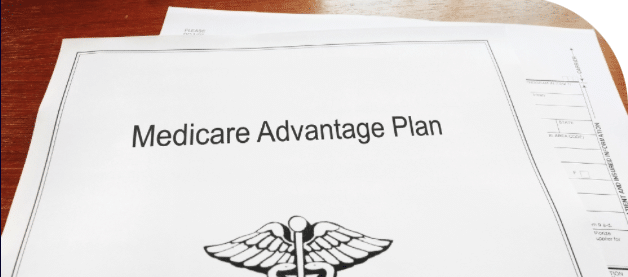October 15 marks the first day of open enrollment in Medicare Advantage (MA) plans—a time that will deliver chaos and confusion for many of the 34 million seniors who depend on these plans to pay their healthcare bills. It’s yet another reminder that Medicare wastes billions of dollars funneling public money to private companies that are primarily driven by profit-seeking.
Last year, more MA members than expected used their benefits to get necessary medical care. One might assume that companies would expect beneficiaries to use health care services. But after years of making outsized profits, the insurance companies that own these plans are reacting to this by downsizing plans, cutting benefits, increasing copays, and raising prescription drug deductibles. In other words, Medicare Advantage beneficiaries are being penalized for using the health care that they pay for.
Insurers are Dropping Plans and Slashing Benefits
Having spent decades luring enrollees and collecting premiums, two of the biggest health insurers in the MA marketplace, CVS and Humana, are scaling back, slashing benefits, and canceling plans with too many members who used their health benefits. They are closing less profitable health plans that serve half a million or more seniors, forcing them to sign up for other more expensive or less generous coverage. Humana is set to leave 13 markets around the country, affecting 560,000 beneficiaries or 10 percent of its plan members. The reason for exiting? The CFO herself, Susan Diamond, said the specific markets just aren’t profitable. CVS Chief Financial Officer Tom Cowhey sent a similar message at a conference last month:
Could we lose up to 10 percent of our existing Medicare members next year? That’s entirely possible. And that’s okay because we need to get this business back on track.
Medicare Advantage plans are being impacted all over the country. In Vermont, MVP and WellCare are dropping two MA plans in January 2025. This will affect 6,000 older Vermonters who will need to quickly choose new plans in the upcoming enrollment period. The MA plans cited spiking health care costs and lower Medicare reimbursements. WellCare, which is run by Centene Corp, pulled out of Alabama, Massachusetts, New Hampshire, New Mexico, and Rhode Island in addition to Vermont, leaving 40,000 people and 4 percent of MA beneficiaries without continued coverage past the enrollment period. In New Hampshire, multiple MA plans are shutting down, leaving tens of thousands beneficiaries scrambling. In Minnesota, nearly 60,000 people will face disruptions to their MA plans.
Health systems and hospitals are also making the decision to cancel contracts due to excessive prior authorization denial rates and slow payments from insurers. Already 27 health systems have canceled their Medicare Advantage contracts this year. MA plans can be especially harmful to rural providers who already face financial hurdles, and may further struggle to continue providing care to their communities due to unreliable and low reimbursements from insurers.
The MA companies are following a similar strategy when it comes to prescriptions. To weed out people who require expensive medications, insurance companies are raising copays on drugs, hoping members will seek more affordable coverage elsewhere. Roughly two-thirds of all 34 million Medicare Advantage enrollees are in plans where the drug deductibles will increase by 167 percent—or at least $200 next year.
And all of this is in addition to the serious, well-documented problems with denials of care and coverage in Medicare Advantage that beneficiaries have experienced since the program started.
Medicare vs Privatized Medicare Advantage
The purpose of insurance companies running Medicare Advantage plans is to make money, pure and simple. Seniors across the country rely on these plans—yet the record shows that insurers don’t value the quality and affordability of care, and don’t want beneficiaries to use the medical services they need. Beneficiaries are tossed aside because they live in an unprofitable market for their insurer or because they are actually using the insurance they signed up for to access services.
The purpose of Medicare is different: Protecting American seniors by guaranteeing health coverage. Medicare Advantage funnels taxpayer money to predominantly large insurance companies like CVS-Aetna and UnitedHealthcare to manage what healthcare beneficiaries can access. This has cost significantly more than Traditional Medicare, transferring hundreds of billions of dollars in overpayments to large corporations who profit by getting more taxpayer money and spending less on coverage. Now that beneficiaries want to utilize the care they have been promised, these insurance giants are choosing to raise healthcare costs for American seniors.
As we reach the open enrollment period from October 15 to December 7, beneficiaries should consider signing up for Traditional Medicare to ensure they get covered for the care they need from the doctors and hospitals they want to use, without administrative hurdles. In Traditional Medicare, seniors need not worry about insurance companies dropping or altering their plans or pushing higher costs on them and reducing access. Since the government does not require an out-of-pocket cap in Traditional Medicare—something that is necessary in MA plans—beneficiaries should consider getting a supplemental Medigap plan if they can afford it to get true comprehensive coverage.
In most regions, the companies assure that there will still be Medicare Advantage plans available from other companies, or the same company. But what is to say MA plans do not use profit as their north star once again next year?
When healthcare is a business, regular people lose.
Emma Curchin is the Domestic Outreach and Research Assistant at the Center for Economic and Policy Research.

